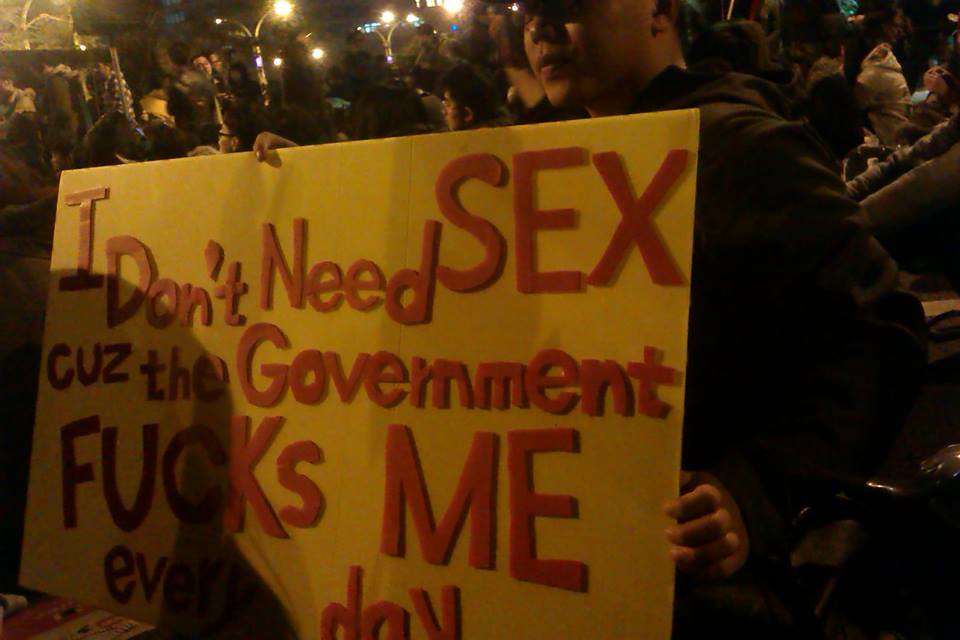Why is that, and why is it a problem? Well, you can read more here.
Catalonia aside, I think the two biggest issues facing Taiwan vis-a-vis the rest of the world are first, getting the outside world to understand what Taiwanese nationalism is about, and second, changing perceptions that politics somehow works "differently" in Asia (the old "Asian values" nonsense, even though the 90s are over and Lee Kwan Yew - the most well-known proponent of this idea - is dead).
To wit:
There are good reasons for the West to support a referendum on Taiwanese statehood, however. The post-war Western world has moved away from the idea of ethnic nation-states, having correctly decided that pigeonholing people into specific nations by ethnicity only causes more tensions rather than easing them. Yet Catalonia, an area whose identity is deeply fused with ethnic identity, enjoys international sympathy for its desire for a referendum. Taiwan, on the other hand, has no “ethnic” claim to nationhood. It is made up of ethnically Chinese Hoklo and Hakka people, a number of distinct indigenous groups, and a growing number of people from Southeast Asia and the rest of the world who have made Taiwan their home. Its nationalism is today a civic nationalism based on shared values, and these shared values line up nearly perfectly with those of Western democracies.
I cannot emphasize this point enough. Taiwan exists as a place, an idea, an identity and a state because of the shared values of democracy, human rights and self-governance that the Taiwanese share. Taiwan is not an ethnic enclave, so it cannot exist based on ethnocentric reasons (although previously, Taiwanese nationalism was tinged with a fair amount of Hoklo chauvinism, to its detriment). This is an idea that the rest of the free world can and should - I would argue must - support. It worries me that other nations don't understand this - I have heard before that Taiwan ought to be Chinese moreso than Tibet or Xinjiang because at least they are ethnically the same, as though that should matter in the slightest! It worries me even more that some people perhaps do understand this, but don't care.
And there's this:
There may be a deeper, more troubling reason [for the lack of international support for Taiwan] as well. When discussing current affairs in Asia, there is a fear of “imposing Western values on Asians.” Westerners are perhaps more willing to support self-determination by a minority within a Western state; when asked about a territory in Asia, may point to “Asian values” or how politics happen “differently” here, where people view issues of governance, democracy and human rights through a different lens. One might even hear “Confucian” values evoked to defend this stance.
While this attempt at multiculturalism and intercultural understanding is laudable in some ways, when it comes to issues of human rights and freedom, such a view essentially states that these things are for Westerners and are not available to Asians. Or, even more troublingly, that Asians as a whole don’t want them or that they somehow do not apply to Asian cultures. By this logic, Westerners are entitled to self-determination, but in Asia one apparently does not deserve such privileges.
Such a view is acutely harmful to Taiwan, a free and liberal democracy that values self-determination in much the same way Western nations do. Such a view also benefits China, an unfree and illiberal state whose values are in direct contradiction to those of the free world. The Chinese government has said openly that these values, which ought to be universal human values, are merely ‘Western’ and therefore do not apply to them. For the West, to support such a view is to undermine its own moral framework.
No but seriously, I'm gonna throat-punch the next well-meaning liberal who throws this stale 1990s-era garbage about "Asian values" at me. It happens too often and it's got to stop. Here's an "Asian value" for you: treat people like people. Or do as Lao Tzu said - I'm paraphrasing here - and just chill already. Here's another Asian value: democracy, self-determination and human rights matter. Want to know why that's an Asian value? Because an entire nation of Asians - that is, Taiwan - believes it! In fact I think they'd be offended to hear the idea that they somehow don't deserve these basic rights because Asia is somehow "different", or that they don't need them, or worse, that they don't want them. Or, worst of all, that the mere suggestion that they should have them is itself "culturally imperialist".
You know who supports the idea that Asia is somehow "different" so the West can't impose so-called "Western values" (which are actually universal values) on them?
Dictators, that's who. Because it's convenient for them to do so - it suits their ends, which are not the ends that any person who believes in human rights and bettering the world can accept.
By acting as though Asia is somehow less deserving, we are helping the dictators, authoritarians and power-hungry expansionist regimes willing to torture and murder their own citizens. Is that really what we want to be doing?
You know who supports the idea that Asia is somehow "different" so the West can't impose so-called "Western values" (which are actually universal values) on them?
Dictators, that's who. Because it's convenient for them to do so - it suits their ends, which are not the ends that any person who believes in human rights and bettering the world can accept.
By acting as though Asia is somehow less deserving, we are helping the dictators, authoritarians and power-hungry expansionist regimes willing to torture and murder their own citizens. Is that really what we want to be doing?

